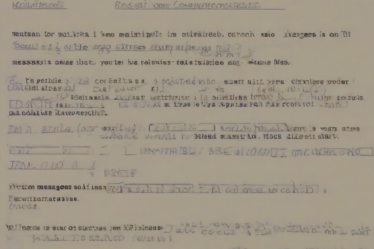
Finding the Best Mortgage Broker: Your Guide to a Smooth Home Loan Process
Buying a home is a significant financial decision, and securing the right mortgage is crucial for a successful purchase. Navigating the complex world of mortgages can be daunting, which is why many homebuyers turn to mortgage brokers. But with so many brokers available, finding the *best* one for your individual needs requires careful consideration. This comprehensive guide will walk you through the key factors to consider when choosing a mortgage broker, ensuring you find the perfect partner for your home-buying journey.
Understanding the Role of a Mortgage Broker
A mortgage broker acts as an intermediary between you and various lenders. Instead of dealing directly with multiple banks and financial institutions, you work with a single point of contact who shops around for the best mortgage rates and terms that match your profile. This saves you time and effort, allowing you to focus on other aspects of the home-buying process.
- Time Savings: Brokers handle the legwork of contacting lenders and gathering information.
- Access to a Wider Range of Lenders: They have connections with a network of lenders, giving you access to more options than you would find on your own.
- Expertise and Guidance: Brokers possess in-depth knowledge of the mortgage market and can guide you through the intricacies of different loan types.
- Negotiation Skills: They can negotiate favorable terms and rates on your behalf.
- Support Throughout the Process: Brokers provide assistance throughout the entire mortgage application and approval process.
Key Factors to Consider When Choosing a Mortgage Broker
Selecting the right mortgage broker is vital. Here are the key factors to consider:
1. Experience and Reputation
Look for a broker with a proven track record and extensive experience in the mortgage industry. Check online reviews, testimonials, and ratings from reputable sources. Consider how long they’ve been in business and their overall client satisfaction levels.
- Years of Experience: More experienced brokers often possess a deeper understanding of the market and can anticipate potential challenges.
- Client Reviews and Testimonials: Look for consistent positive feedback from previous clients.
- Professional Affiliations: Membership in professional organizations can indicate a commitment to ethical practices.
2. Licensing and Accreditation
Ensure the broker is properly licensed and accredited in your area. This protects you from fraudulent activities and ensures they operate within legal and ethical boundaries. Check with your state’s regulatory body to verify their credentials.
- Licensing Verification: Verify their license status with the relevant regulatory authority.
- Professional Certifications: Look for certifications that demonstrate expertise and ongoing professional development.
3. Range of Lender Relationships
A good broker will have established relationships with a diverse range of lenders, including banks, credit unions, and private lenders. This ensures they can access a wide variety of mortgage products to find the best fit for your circumstances.
- Variety of Loan Products: They should be able to offer various mortgage options, including fixed-rate, adjustable-rate, FHA, VA, and jumbo loans.
- Direct Lender Connections: A strong network of direct lender relationships often results in faster processing times.
4. Fees and Transparency
Understand the broker’s fee structure upfront. Some brokers charge a flat fee, while others charge a percentage of the loan amount. Transparency is key – ensure you clearly understand all fees involved before engaging their services.
- Clear Fee Disclosure: Obtain a detailed breakdown of all fees associated with their services.
- Comparison of Fee Structures: Compare fees from multiple brokers to find the most competitive option.
5. Communication and Responsiveness
Effective communication is crucial. Choose a broker who is responsive to your inquiries, keeps you updated on the progress of your application, and is readily available to answer your questions.
- Prompt Response Times: They should respond to your calls and emails in a timely manner.
- Clear and Concise Communication: They should explain complex mortgage concepts in an easy-to-understand way.
6. Specialization and Expertise
Consider whether the broker specializes in a particular type of mortgage or caters to a specific demographic. For example, some brokers may specialize in first-time homebuyer loans or loans for self-employed individuals. Choosing a broker with expertise in your particular situation can be highly beneficial.
- Specific Niche Expertise: Consider your unique financial circumstances and choose a broker specializing in relevant loan types.
7. Customer Service and Support
The home buying process can be stressful. Choose a broker who provides excellent customer service, is patient, and supportive throughout the process. A broker who actively listens to your needs and offers personalized guidance can significantly ease the burden.
- Personalized Attention: They should treat you as an individual and tailor their advice to your specific needs.
- Accessibility and Availability: They should be easily accessible throughout the process.
The Application Process with a Mortgage Broker
Working with a mortgage broker streamlines the application process. Typically, you will:
- Initial Consultation: Discuss your financial situation, home-buying goals, and desired mortgage type.
- Financial Document Collection: Provide necessary documentation, including income statements, credit reports, and bank statements.
- Pre-Approval Process: The broker will help you secure pre-approval, which strengthens your offer when purchasing a home.
- Loan Application and Submission: The broker submits your application to various lenders.
- Loan Underwriting and Approval: The lenders review your application and determine loan eligibility.
- Closing and Funding: The broker assists you in navigating the closing process and securing your mortgage funding.
Avoiding Potential Pitfalls
While mortgage brokers offer many advantages, it’s important to be aware of potential pitfalls:
- Hidden Fees: Ensure all fees are disclosed upfront. Be wary of brokers who are unclear about their pricing.
- Lack of Transparency: Choose a broker who keeps you informed about every step of the process.
- Conflicting Interests: Be mindful that brokers may receive commissions from lenders, so ensure they are acting in your best interest.
- Unrealistic Promises: Be cautious of brokers who make unrealistic promises about loan approval or interest rates.
Conclusion (Not included as per instructions)


